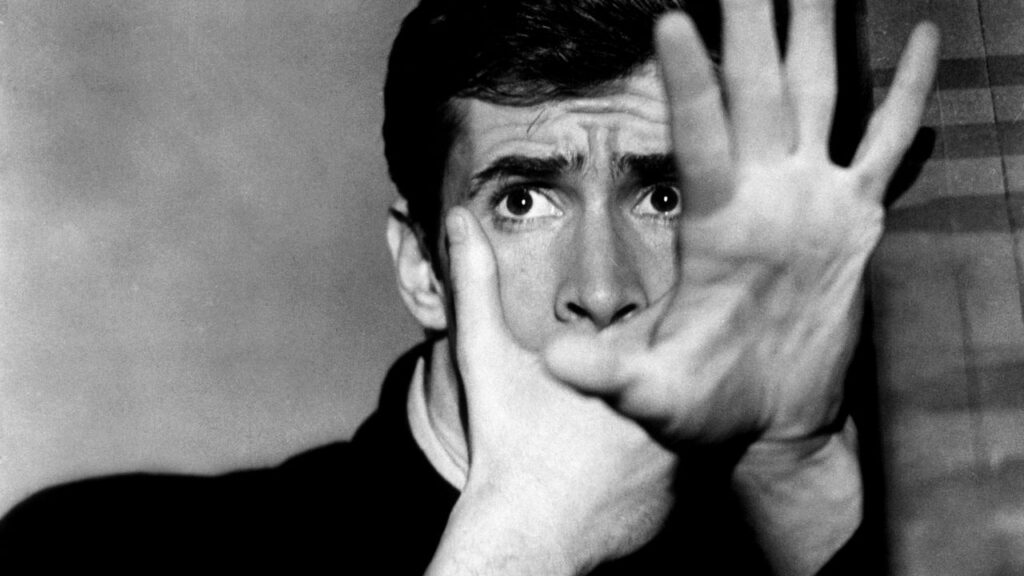Even if you don’t know his name, you know the macabre legacy of Ed Gein. In 1957, the reclusive farmer from Plainfield, Wisconsin, was unmasked as the most crazed and disturbing serial killer America had ever seen—and arguably has ever seen since. So gruesome and grotesque were the crimes of the so-called Butcher of Plainfield, Plainfield Ghoul, or Grandfather of Gore that more than 65 years of filmmaking haven’t yet imagined much worse.
“You can understand why moviemakers gravitate toward Gein,” says Christopher Berry-Dee, author of Serial Killers at the Movies. “He’s unique, creative, enterprising, and imaginative. We don’t get many killers like Ed anymore.” As yet another version of Gein rears its ugly head into the zeitgeist—this time on Ryan Murphy’s new season of Monster, starring Charlie Hunnam as Gein and Laurie Metcalf as his overbearing mother—here’s a look back at Hollywood’s long and lurid history of borrowing from Gein for the big screen.
Psycho, 1960: “A boy’s best friend is his mother”
Alfred Hitchcock based Psycho on the eponymous 1959 novel by Robert Bloch, who lived just about 35 miles from Gein’s infamous Plainfield farm. According to Ed Gein: Psycho! author Paul Anthony Woods, Bloch penned his novel in a feverish seven weeks, and he was surrounded by sensational press (one headline from The Milwaukee Journal: “Obsessive Love for His Mother Drove Gein to Slay, Rob Graves”), but Bloch always denied his murderous neighbor was the inspiration for Norman Bates.
But viewers couldn’t ignore their parallel psychologies. Edward Theodore Gein (rhymes with “bean”) was born in 1906 to Augusta Gein, a fervently religious mother who taught her boys that modern women were evil seductresses. Augusta favored her second son, Ed—who became, according to Woods, “a mama’s boy from day one.” An avid reader who might have excelled, young Ed dropped out after the eighth grade after being bullied for his speech impediment and lazy eye. Gein lived on their 275-acre farm and did odd jobs for locals—including babysitting—who considered him strange but mild-mannered and nonthreatening.
In five short years, Gein’s father, brother, and mother all died, leaving the then 39-year-old bereft (if only for his mother’s loss) and isolated. Like Norman Bates, Gein kept rooms that his mother used to frequent untouched, boarding up their windows and doors. Gein’s rooms, meanwhile, grew increasingly squalid and crowded, and featured the results of both Bates’s and Gein’s preferred hobby: taxidermy.
Three on a Meathook, 1972: “I ain’t havin’ no trash in your ma’s home”
While Norman Bates is proprietor of the Bates Motel, young moviemaker William Girdler relocated his Gein-like killer to the backwoods fields of Girdler’s own hometown in Louisville, Kentucky. In Three on a Meathook, handsome farmboy Billy Townsend brings oft-topless young women home to his secluded farm, where they meet their gruesome fate at the hands of his fanatically religious father.

